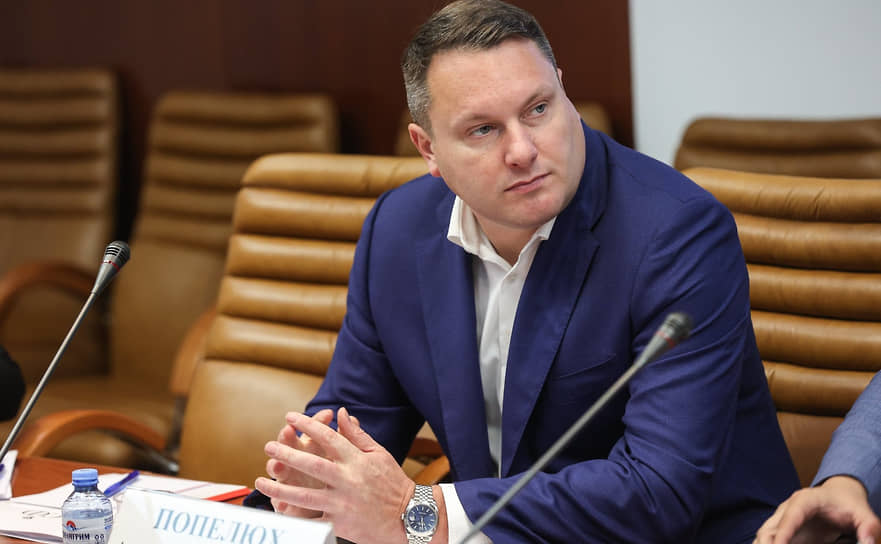During the period when the Deposit Insurance Agency was headed by Yuri Isaev, the DIA in 2019-2020 in the official media field indicated that it would completely refuse the services of attracted law firms and the only option for interaction with the DIA would be possible under the terms of litigation financing.
In reality, the DIA initially refused the services of attracted organizations for almost all liquidated banks, except for those for which the creditors' committee voted to continue working.
The point is this: the DIA refuses to interact with organizations, since they have to pay a permanent subscription fee and remuneration from the collected amounts, instead hiring lawyers on staff under an employment contract and significantly saving money.

However, as Rucriminal.info found out, the deputy head of the DIA Popelyukh (currently under arrest) together with the general director Melnikov found a way out of the situation when the Agency formally refused the nomination of "Attracted firms", having come up with the nomination of "Services for the return of problem assets".
This category included only 6 firms, which, according to information from their websites, have the only major counterparty - the DIA: Vector Prava, Yurenergoconsult, G.R. Legal, Asgard, MYUZKA.
The terms of the contracts with these firms provide for both a subscription fee (monthly) and a percentage of the collected amounts.
That is, in fact, the Agency, represented by its managers, under a different wrapper, retained for the "selected" organizations the terms of payment of remuneration from the bankruptcy estate (in particular, the amount of the subscription fee for the Yugra bank in favor of Yurenergoconsult is about 7 million rubles per month)
Then the next point was to justify that the asset is really problematic. In theory, this should mean that the Agency cannot cope with the work on its own, since there is, say, a foreign element, or other factors, based on which, according to the results of typical events carried out by the DIA, you will get nothing from working with the asset, therefore, it would be justified to carry out the work of a third-party organization.
In reality, Popelyukh and Melnikov transferred the most "tasty" pieces within the framework of problem assets, for which there was no need to carry out any outstanding legal work, and which in reality the DIA could deal with independently (for example, collect accounts receivable, challenge transactions, etc.), while the organizations received money from the bankruptcy estate of bankrupt banks + a success fee, which in itself does not indicate effective management (there is also information about the connection of these firms with the DIA management).
At the same time, even within the framework of this work, certain problems begin to emerge related to the control of the DIA's work over these organizations:
In the Arbitration Court there was a case about how the DIA tried to collect 11 billion rubles! with Yurenergokonsalt, which was expressed in missing the deadline for filing claims against the guarantor of Kayum Neft JSC, as well as failure to take measures for state registration of the mortgage of Meridian LLC, but the Agency was denied satisfaction of the claim with reference to the fact that "the acts of acceptance of services were signed by the Agency without comments". Similar conclusions are contained in another judicial act on the refusal to recover damages from Yurenergokonsalt in the amount of 1 billion rubles.
It turns out that this judicial act actually indicates a complete lack of proper control by the DIA over external consultants.
At the same time, the Agency continues to work with the said organization, despite the presence of 8 claims against UEK (data taken from the card index of arbitration cases). 2. As part of the bankruptcy of PJSC Bank Premier Credit, G.R. Legal was transferred a dispute on bringing 18 former managers of the credit institution to subsidiary liability in the amount of 1.5 billion rubles. The courts refused to satisfy the claims in full!!! citing the lack of proper evidence on the part of the DIA confirming the guilt of the bankers. This is an outrageous case in the practice of the DIA, since such claims are always satisfied by arbitration courts.
As a result, it turns out that not only does the DIA transfer problem assets, which in reality are ordinary assets of bankrupt banks, directing part of the funds from the bankruptcy estate in favor of external consultants, but it also incurs losses due to the poor quality of work of these organizations.
Arseniy Dronov
To be continued
Source: www.rucriminal.info






